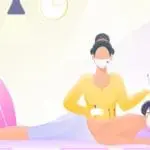Be Well: The Allure of Acupuncture
From Mpls.St.Paul Magazine’s Be Well

“People are drawn to acupuncture as a second career, because they want to help others in a way that focuses on a person’s own innate ability to heal,” she says. “So, you’re helping patients take control of their health, their pain, or their diet.”
For many, acupuncture is their first career choice, but other practitioners are finding that acupuncture is a natural extension of work they are already doing.
“You see people coming from the nursing field, or they have been yoga practitioners and they want to do more with a holistic viewpoint of health care,” Frier says. “That’s generally what attracts people to a second career in acupuncture.”
She points to an array of acupuncture specialties and an increasing number of places to put that training to work, including chiropractic offices, primary care clinics, hospitals, pain clinics, physical therapy departments, athletic facilities, hospices and massage therapy practices. “You could also open your own business and practice in that manner,” Frier says.
A Passion for Health, Healing, and Helping
Kate Moknes Bowman, DACM, LAc, says everyone’s journey into Chinese medicine is different. Her journey began in a pre-med program that led her to degrees in social work and business and, eventually, a doctorate in acupuncture and Chinese medicine.
“I really like medicine, but how I got onto this track is that I really wanted to know more about nutrition and the root cause behind why we get sick,” she says. “And that is really what Chinese medicine is all about—a functional medicine approach.”
Now she puts her social work training, business education, and doctorate to work in her acupuncture clinic and NWHSU’s Human Performance Center, where she helps elite athletes stay healthy and recover from injuries.
“I love doing both, seeing the patients, having all of the issues come into the clinic and what’s going on in the community, and then I’m able to translate going back and teaching the students,” Bowman says.
She also teaches a new generation of acupuncture practitioners at NWHSU and makes time to study advances in science about the biomedical effects of acupuncture and Chinese medicine.
She once found it puzzling when engineers studied acupuncture as a second career, she says, but she realized they were drawn to the field for the same reason she was—problem solving.
“For me, it’s really about finding what actually is the root of the health issue,” she says. “So, I think that’s how engineering comes in, although it is a different path than mine.”
How do you make the leap to acupuncture and determine if it’s the right fit for you? Bowman says it’s easy to find out. “Go shadow someone and make sure it’s something you want to do … something you’re passionate about.”
Getting to the Point
The gateway to becoming an acupuncturist is through NWHSU’s master’s program, says Frier. “It gives you a solid foundation in all of the modalities that encompass being an acupuncturist.”
Depending on the program, it takes two-and-a-half to four years’ worth of study to earn a master’s. But students are ready to begin practicing as an acupuncturist as soon as they complete their degree, because they have completed clinical work during their studies.
“We have one of the most robust clinical experiences of any college in the country,” Frier says. “That includes specialty clinics out in the community with special populations like HIV patients, geriatric patients. We have a number of hospital rotations, too.”
NWHSU offers flexible schedules to allow students to earn degrees while they are working or raising a family, which explains why it can take as little as two-and-a-half years or as long as four years to earn a degree.
“We’re accustomed to working with people like that,” Frier says. “It might take you a little longer to get done, but eventually we get you through.” Classes begin in September and January, but those embarking on a fall program can take summer classes to hit the ground running in September.
Taking a Deeper Dive
For those who want to lean into more theory, clinical applications of Chinese medicine and research, a doctorate in acupuncture is often a goal. At NWHSU, it takes a little over three years to complete the degree. And, yes, acupuncturists with a master’s can return and earn a doctorate.
Frier describes it as “looking more into the integrative perspective around health care and the acupuncturist’s role in health care. So, it really is a dive into medicine.”
“One of the beautiful parts of East Asian or Chinese medicine in general is the flexibility,” she says, “the ability to practice in a way that makes sense to you.”